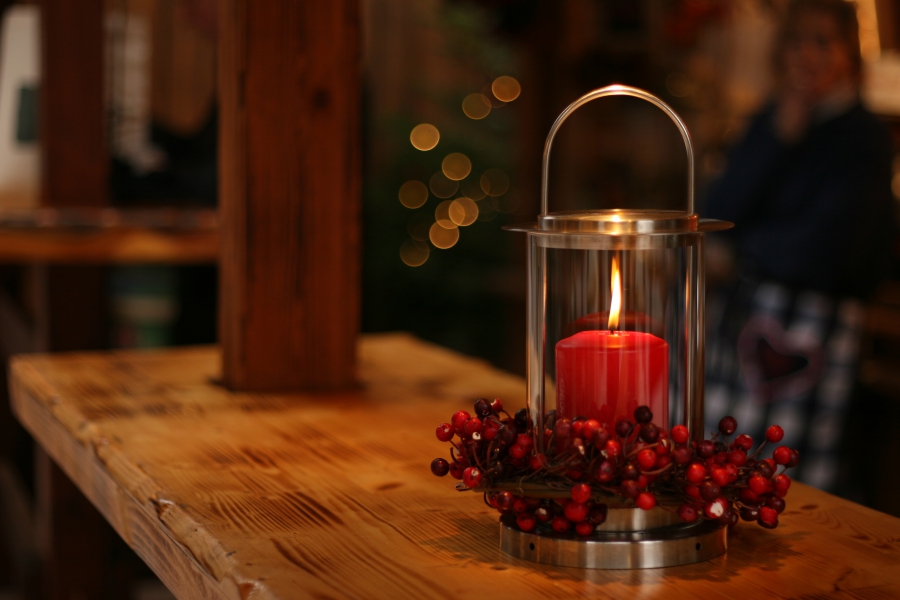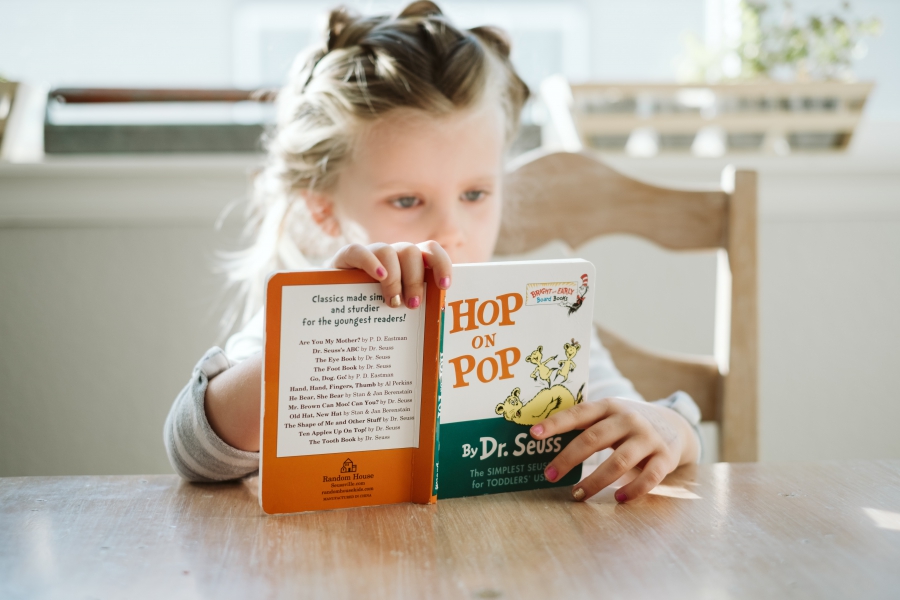English blog archive 2019

Mariana B. on Unsplash
December 2019 © Gaby van Halteren
Short and Sweet
Happy Holidays and a Wonderful 2020!
For me, 2019 has been a special year, quite different from the others before it. In 2018 I decided to give writing a(nother) chance and to self-publish. Before actually writing I scoured the internet for the things I needed to know about self-publishing and found a lot of information, some useful, some misleading, some downright false. It was pretty overwhelming but within a few months I started to see a pattern. I took a few courses, I bought a few books, and at the end of the year I was confident I knew (in theory!) most of the things I needed to know and do to get my book out there once it was written.
A Whole New World...
... in more than one way. Now, in 2019, it was time to sit down and write. I started building the world for my fantasy novel (the prequel to a trilogy I was and am planning) in March, did Camp NaNoWriMo in April (17,500 words) and July (20,002 words), and NaNoWriMo in November (sadly only 20,392 words, I had hoped for at least 25,000). Of course, I wrote during the months in between as well.
I finished my fantasy novel in September and my second novel, a Christmas romance, just yesterday. Obviously, this one is too late for this year's Christmas, but it will be ready, hopefully together with two sequels, in time for next year's Christmas season.
While the fantasy prequel is being edited I plan to write the second book, which is the first of the trilogy.
And then there's a series of children's books stuck in my head wanting to come out into the world...
It's safe to say I won't get bored next year. It will be full of new experiences (as in self-publishing a book for the first time, wish me luck!), there will be a ton of things that won't go smoothly, but that's okay. I will learn what I need to learn, and I will persist and persevere!
So, not so short, but hopefully sweet, this last blog of 2019.
I'll see you at the other side, have a great time!
The blog post Short and Sweet was first published on puresimplewriting.com.
*****

Photo by Guzmán Barquín on Unsplash
November 2019 © Gaby van Halteren
Show vs Tell, Finally!
I wanted to write a blog about this months ago, but life and other topics got in the way. November has been crazy as well up to now, and I don't expect it to change in the last three days. I'm doing NaNoWriMo which explains (almost) everything. I'm blissfully behind on my word count, blissfully, because I didn't expect to get any way near the required 50.000 words of the National Novel Writing Month. I'm writing every day and making good progress, that's what counts for me. I did Camp NaNoWriMo in April (wrote about 17.500 words) and July (20.002 words, yes, really!), so anything above 20.002 words is a win. I'm at 18.578 today, and I can definitely write another 1.425 in the last three days, and maybe then some.
The other crazy thing I did this month, a week ago, was deciding to overlook a toolbox standing on the floor which resulted in me smashing my right foot into said toolbox and breaking a toe. Fortunately I don't need my toes to write, the silver lining to my cloud.
Am I showing or telling in my NaNoWriMo novel?
If I'm doing it right, it should be both, of course. Since the novel (a Christmas romance novel, by the way) isn't finished yet, the jury is still out and will be for a while (the jury being my editor...).
If you're a fellow writer, you probably read the following quote before, if you're a reader, it should explain the difference between show and tell in perfect simplicity and clarity:
"Don't tell me the moon is shining,
show me the glint of light on broken glass."
This quote is attributed to Anton Chekhov, a Russian writer who lived and worked in the latter half of the 19th century. Leave it to the Russians to make even a quote like this one melancholic, and it's not even from Doctor Zhivago. But it shows the show and tells the tell and makes the distinction between those two unmistakable.
Show don't tell sounds fairly simple and straightforward, but it is actually pretty complex, and it takes time and a lot of practice before you master it as a writer. I won't go into too much detail, so let's think up a simple example:
"I am sick," she said.

Photo by Dave Francis on Unsplash
And Then, Yawn, What Happened?
Certainly straightforward, but also tedious, right? What about this instead:
With no handkerchief anywhere in sight she used the sleeve of her sweatshirt to wipe her running nose. A moment later a sneezing fit shook her entire body. She fell back onto the bed and covered her shivering body with not one, but two blankets.
These two obviously are extremes from the opposite sides of the spectrum between telling and showing, but as examples go, they do the job.
If you want to know more, just google Show don't tell examples. I also recommend watching a short video by Joanna Penn.
Writing about this topic reminded me that I really need to check every sentence of every scene of every chapter in both my novels again. I am a new writer, after all, and susceptible to simply stating what is happening instead of using all the senses and a matching metaphor every now and then to make my writing 'juicier'.
This shouldn't take too long, maybe a year, ..., or two?
The blog post Show vs Tell, Finally! was first published on puresimplewriting.com.
*****

Photo by Jeremy Thomas on Unsplash
October 2019 © Gaby van Halteren
That Time of Year Again
Let's look ahead, shall we?
September has been an incredibly busy month for me, so much so that I completely missed it, in my head I went from August straight to October.
Revising and editing my first fantasy novel
I finished the first draft of my first fantasy novel mid September, then revised it which took me another two weeks, and now it's with my editor. No matter how many books I read about writing, I'm certain I made every newbie writer mistake there is. But that's fine (and necessary), I promised myself to make every mistake just once and then move on to the next one.
Which brings me to the next opportunity to make mistakes, my second fantasy novel which is actually book 1 of a trilogy (and my first novel is the prequel). There has been some plotting and some writing going on, but then, due to it being October and the first Christmas stuff making its appearance in the shops, I decided to write a
Christmas story
first. It has been in my head for 10 years now, and it desperately wants to get out. So I let it. Otherwise the consequences might be dire. Right now I'm watching Christmas movies to get in the mood, and I know where to start and where to end my story. I'm not afraid of what writers often call the 'murky middle', the part of a novel where the writer gets stuck and has to figure out how to connect the beginning with the end to create a true story out of all these moving parts. I won't have time to get stuck because I'm doing
NaNoWriMo
in November. During this 20th anniversary of the National Novel Writing Month I will attempt to write the 50.000 words I'm supposed to which means close to 1700 words a day. Which means no time for writer's block.
You can expect an update on all of the above next month, so stick around.
The blog post That Time of Year Again was first published on puresimplewriting.com.
*****
August 2019 © Gaby van Halteren
To Follow or Not To Follow
Good advice is hard to get these days
Disclaimer: this blog expresses my personal opinion, nothing more and nothing less.
This is about all the books, blogs and articles trying to tell me how to write my book. Some of them are useful, and I've learned a great deal from reading them. But for every blog out there, there is another one stating the exact opposite of the first. Which should I believe? Which should I follow?
Using common sense is the obvious choice, but that is easier said than done; sometimes both sides make compelling arguments, and it's close to impossible to choose. Then how about the middle ground? The best of both worlds? That actually might work, let's see:

Photo by Andrew Neel on Unsplash
1. Write every single day vs. It's not necessary to write every day
To become first a good and then a better writer, you must hone your craft, and that means writing every day. It doesn't matter whether you feel like it or not, sit your butt down in that chair and write! I understand that practice makes perfect (well, as perfect a writer as you can get). And it might be true for non-fiction writers or bloggers. Just choose a topic and start writing or go back to the chapter you didn't finish yesterday.
But as a fiction writer I won't be able to write a scene full of emotion if and when I don't have any inspiration whatsoever. Other, more experienced writers probably will, but not me. I might try to get into the right mood by playing music, but if that doesn't work, I don't stay in my chair no matter what. Staring at a cursor on an empty screen or writing something I know I will delete later is, in my opinion, a waste of valuable time and won't make me a better writer, because it can never be my best writing.
However, thinking about writing, devising a scene or story twist or doing some world building are all things I can do instead, and one of them will always work. I may not be writing-writing, but all the same getting closer to finishing my work in progress. It might take me a while longer to find my own voice (still searching for it, btw), but I'm a lot happier and stress-free.

Photo by Josh Applegate on Unsplash
2. Read as many books as possible vs. Restrict your reading, follow your own path
I used to be a voracious reader. It started when I learned how to read at age four, not willing to wait until school decided it was time for me to learn how to read. I read my way through several libraries, from fiction to non-fiction, from romance to horror and everything in between. But reading Kant and Nietzsche at age eleven taught me one thing and one thing only: that I wasn't ready for philosophy at that age.
Later I slowed down; life got in the way. For many years I didn't have time to read more than a few books a years, because there were too many other things I wanted or needed to do. The silver lining: I picked those books very carefully.
Since I've decided (pretty late in life) that I want to be a fiction writer, reading books feels different now. There are books about writing, self-publishing, and book marketing that are very valuable, and I need to read those. Fiction, especially the genre I am writing in, is another matter. Some of these books I read as a reader, some as a writer. But I don't think quantity over quality is ever the way to go. I want to find my own voice, my own path, and reading too many books will only lead to me imitating other writers, whether in style or story. I know, there is only a limited number of story 'archetypes' that have been told and retold all through history, but will reading as much as possible in my and other genres help me come up with something original or exactly the opposite? The jury is still out on that one.

Photo by Angelina Litvin on Unsplash
3. Always carry a notebook with you vs. Don't take notes, you won't forget the good stuff
At my age and with my chaotic life I can be brief about this: I need notebooks, plural! I keep several small notebooks around the house, in every room, even the bathroom, and at least one in my purse. Whenever I think of something, an idea for a dialogue or an item for my grocery list, I write it down. I know by now that even the best idea ever will be lost forever if I. Don't. Write. It. Down. Writing by hand works the best, I remember what I write a lot better and longer than with using a keyboard (see also my previous blog My Writing Sanctum and Sanctuary here).
This was fun! I think I might write another blog like this one about an important rule of writing, Show Don't Tell, just to see where it will lead me.
My best advice for you: You are the expert on you! So don't follow advice that isn't right for you – not even this one.
The blog post To Follow or Not To Follow was first published on puresimplewriting.com.
*****

Photo by Lisa Moyneur on Unsplash
Alas, not my bathroom, but I love it!
July 2019 © Gaby van Halteren
My Writing Sanctum and Sanctuary
I'm the most creative in my bathroom in the morning. Though I'm definitely NOT a morning person, my bathroom in the morning is my sanctum and my sanctuary from the world.
As soon as I leave it the real world comes (c)rushing in with emails, phone calls, clients needing translations, blogs or copywriting, and other work that has nothing to do with creative writing.
But ... as long as I'm in my bathroom the rest of the world doesn't exist, only my own little piece of it, my world, my story world. Whatever comes to mind I write down in a notebook – yes, the paper version – that's always in the bathroom (actually two notebooks, so I can take the one I just wrote in to my computer and still have one left in the bathroom at all times).
Benefits of writing by hand
Writing with an actual pen on an actual piece of paper is not only making a comeback in my bathroom but all over the world. While it was viewed as old-fashioned for years, scientific evidence now shows that writing by hand has many benefits, among them my favorite: it makes you more creative and connects you to the words by fully engaging your brain. It seems your brain works quite differently when you write by hand compared to when you use a keyboard or a smartphone.
Some of the other benefits include:
- learning more and comprehending it better
- increasing focus and enhancing memory retention
- by requiring more motor skills tapping into what's called the brain's reading circuit
- reducing stress/having a calming effect on body and mind
- slowing down mental aging
Most of what I write in the bathroom is actually pretty good stuff and doesn't need much ironing out. A twist for the story or a new character for my fantasy novel, a name (I'm always looking for special names) or even a great topic for my blogs (yes, I wrote this in the bathroom as well!). I take my notepad to the computer, type it in, alter a word here or rearrange a sentence there, and the notepad goes back into the bathroom.
I know that many writers swear by dictating because it saves an enormous amount of time. You can 'write' thousands of words an hour and have an entire book done in a week or less. I haven't tried it nor will I any time soon; I'm doing it old-school. My gut says you can't possibly have the same connection with the words, experience them the same way if you only say them out loud instead of writing them down. I need that connection. I need that experience. When I put pen to paper I see the words in my mind before I write them down, in color! – my very own wor(l)d building in my bathroom.
The blog post My Writing Sanctum and Sanctuary was first published on puresimplewriting.com.
Missed a blog post? You can read all of them in my archive here (2018) and here (2019).
*****

June 2019 © Gaby van Halteren
The Beginning of a Beautiful Friendship
In April this year's first Camp NaNoWriMo took place. No, not somewhere in the great outdoors, but virtually. I participated for the first time, and it was a rollercoaster ride.
What is Camp NaNoWriMo, you ask?
Well, these strange syllables thrown together are, of course, an abbreviation; the whole name is rather long and if you're taking part in it you simply don't have the time to say the whole thing every time someone asks you about it. NaNoWriMo stands for National Novel Writing Month. Traditionally this month is November and when you as a novel writer participate in it, you are supposed to write 50.000 words in those 30 November days. NaNoWriMo has become a tradition, an institution even, and all around the world writers take part in it every year.
You just said April, not November!
Yes, I did. In April and July there are two related events called Camp NaNoWriMo. Since camp usually is associated with exciting adventures and cozy evenings around the campfire, these events are more laid back. You are allowed to choose your own goal, whether it is word or page count or hours spent writing. There are cabins you can join which represent groups of writers supporting each other. In these groups you can ask any question you might have or get a virtual pat on the back (if you deserve it, that is).
My goal last April was to write at least 15.000 words of the prequel to my fantasy trilogy. I had decided I was going to write the prequel first, make it a novella with all the background information my readers would need before, during or after reading the trilogy itself.
The first days were hard. I had a lot of work, my clients were waiting for translations and blogs, and I was supposed to write at least 500 words a day of a story I had no real outline or plot for (yet). I had started to think about the story in March, but didn't get very far, so on top of not having much time I had to wing it.
The Muddy Middle
Mid-April the worst seemed to be behind me, I was in the writing zone, had found something resembling a plot, and I had written the word count I was supposed to. But then my mother came to visit, my grandson turned four, we celebrated my son's and daughter's birthday (yes, twins) and Easter at the same time, and my clients still wouldn't let up. Within a few days I fell behind with my writing and I felt guilty as hell.
I briefly thought about quitting and trying again in July, but I knew July wouldn't be any different from April. Did I want to be a writer or not? I needed to double down or accept defeat. If you know me, you know that defeat is not an option. So I doubled down, looking for the flow I had lost. To my relief, I found it pretty quickly, hiding in plain sight. After writing some twists and turns for the story, the path right down to The End was finally clear.
On April 30, I had written 17.500 words and made myself proud. Now, a month and a half later, the prequel is almost done. It will be finished by the end of June.
And after June comes July, and guess what, I'm doing Camp NaNoWriMo again. This time my goal is 20.000 words for the first book of my trilogy. YES, I CAN!
PS: I am, of course, very happy with my day job, my clients and all the work they provide me with, otherwise I wouldn't be able to live the great life I'm living, writing my novels. So, thank you, dear clients. No hard feelings, right?
The blog post The Beginning of a Beautiful Friendship was first published on puresimplewriting.com.
*****
.png)
Photo by Nik Shuliahin on Unsplash
April 2019 @ Gaby van Halteren
World Builder's Disease
Uh, excuse me, writer – world builder – word builder ... is that really a thing?
Actually, yes, it is. And I suffered from it. For me personally it felt like having bipolar disorder. It was heaven and hell, both at the same time. The flow I should have been in, writing my story, was reserved for world building and I didn't seem to be able to stop. Add a landmark here and a piece of history there – there was no end in sight?
The 'Pitfall' that is World Building
In genres such as fantasy, sci-fi, alternative history but also when writing stories in other genres you have to create a world for your novel. It may be just the immediate surroundings of your hero and villain but it can also be a whole world, a planet, a solar system or even an entire universe.
That is no small task but a very rewarding one, at least for me. At the beginning I had no idea how and where to start but as soon as I had created the most important characters I imagined the world they would want to live in and took it from there. Slowly but steadily the world began to take shape, first the continents and oceans, then the countries and so forth. I asked myself what kind of governments would exist and how people would live and work in that world. I created the 'broad strokes' first, then added details and more details and more details ... you get the idea.
For quite some time my imagination run overtime until ...
... I read Storyworld First: Creating a Unique Fantasy World for Your Novel by Jill Williamson and she started to talk about World Builder's Disease. Suddenly what was happening to me made complete sense. It's so much easier to handle an affliction like that when you know that it has a name and you're not the only one suffering from it. Since reading that book I have moved on from mostly world building to mostly writing and it's going great. Especially since I signed up for Camp NaNoWriMo – I am actually crushing it right now! More about that in my next blog post in May.
Encore: I want to share the world I built, the world of my books and my characters, with my readers – all of it. Unfortunately that is not a good idea. It would probably result in me dumping the information on my readers, all of it and all at once which, in turn, would probably result in me losing my readers, all of them. Too much of a good thing still is too much, right? :-)
So I have to find the best way to tell my readers about my world in bits and pieces that make sense and keep it interesting and entertaining. Writing isn't supposed to be easy, is it?
The blog post World Builder's Disease was first published on puresimplewriting.com.
*****
Pure writing.
Simple writing.
Pure and simple: writing.







